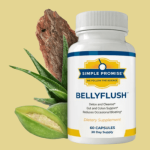Are you looking to improve your gut health? Sauerkraut might just be the answer you’re looking for. Packed with probiotics and nutrients, this tangy fermented cabbage dish has become a popular addition to diets worldwide.
But you might be wondering when is the best time to eat sauerkraut for maximum gut health benefits Well, you’re in luck. In this article, we’ll explore the ideal times to consume sauerkraut to optimize its digestion-boosting potential.
Whether you prefer it as a side dish, a topping, or even in your morning smoothies, sauerkraut can provide a range of benefits, including improved digestion, enhanced immune function, and even weight management support.
But timing is key when it comes to harnessing sauerkraut’s potential. We’ll delve into the best times to consume it, considering factors such as mealtime, potential food pairings, and desired outcomes.
So, if you want to reap the most rewards from this fermented delicacy, keep reading to discover the best time to eat sauerkraut for optimal gut health benefits.
Quick Summary
Consume sauerkraut before meals for digestive enzymes or with meals for probiotics to boost gut health.
What is Sauerkraut, and How is it Made?
Sauerkraut is more than just a delicious topping for hot dogs and sausages; it’s a centuries-old food that boasts incredible health benefits, particularly for your gut.
Originating from China over 2,000 years ago, before becoming a staple in German cuisine, sauerkraut is made through the process of lacto-fermentation. At its core, sauerkraut consists of just two ingredients: cabbage and salt.
The salt is sprinkled over shredded cabbage, which is then left to ferment. During fermentation, beneficial bacteria (probiotics) thrive, transforming the cabbage into a tangy, probiotic-rich food.
This simple yet intricate process not only preserves the cabbage but also enhances its nutritional profile. The result is a food that’s rich in dietary fiber, vitamins C and K, and minerals such as potassium and magnesium.
Furthermore, the fermentation process produces live probiotics, beneficial bacteria that are essential in maintaining a healthy gut microbiome.
The Science Behind Sauerkraut and Gut Health
The connection between sauerkraut and gut health is supported by a growing body of scientific research. The probiotics found in sauerkraut are the same type of beneficial bacteria that naturally reside in our digestive systems.
Consuming probiotic-rich foods like sauerkraut can help replenish and balance the gut microbiome, leading to improved digestion, enhanced immune function, and a reduced risk of numerous health issues.
Probiotics help break down food more efficiently, which can alleviate symptoms of bloating, gas, and indigestion. Regular consumption of sauerkraut can also boost the body’s ability to absorb essential nutrients from food, contributing to overall health and well-being.
Furthermore, a healthy gut microbiome is closely linked to a strong immune system, as a significant portion of the immune system is located in the gut.
Best Time to Eat Sauerkraut for Maximum Gut Health Benefits
To maximize the health benefits of sauerkraut, particularly for your gut, timing can be everything. While sauerkraut can be a healthy addition to any meal, consuming it at specific times can enhance its positive effects on gut health.
Eating sauerkraut before a meal can prime your digestive system, making it easier to digest the upcoming meal. This is because the probiotics in sauerkraut can stimulate the production of digestive enzymes, preparing your gut for the food you’re about to consume.
Additionally, incorporating sauerkraut into your breakfast can kickstart your digestive system for the day ahead, promoting regularity and preventing digestive discomfort.
However, for those with sensitive stomachs or those who are not used to fermented foods, starting with a small amount of sauerkraut later in the day—such as during lunch or dinner—may be more beneficial.
This allows your digestive system to adjust to the probiotics and acidity of the sauerkraut gradually.
Tips for Incorporating Sauerkraut into Your Diet
Incorporating sauerkraut into your diet is both simple and versatile. Here are a few tips to get started:
- Start Small: If you’re new to sauerkraut, begin with a small amount to see how your body reacts. You can gradually increase the quantity as your digestive system adjusts.
- Pair it Wisely: Sauerkraut pairs well with a variety of foods. Try it atop salads, alongside proteins like chicken or fish, or even mixed into scrambled eggs.
- Make it a Habit: Consistency is key when it comes to reaping the gut health benefits of sauerkraut. Try to incorporate it into your meals several times a week.
Potential Side Effects of Consuming Sauerkraut and How to Mitigate Them
While sauerkraut is generally safe for most people, some may experience bloating or gas when they first start incorporating it into their diet. This is typically a temporary reaction as the gut microbiome adjusts to the increased levels of probiotics.
To minimize these side effects, start with small amounts of sauerkraut and gradually increase your intake.
Other Fermented Foods for Gut Health
If you’re looking to diversify your probiotic sources, plenty of other fermented foods can benefit gut health, including yogurt, kefir, kimchi, and kombucha. Like sauerkraut, these foods are rich in probiotics and can support a healthy digestive system.
Conclusion
Sauerkraut is a simple, nutritious food that can offer significant benefits for gut health. By understanding the best times to consume sauerkraut and incorporating it into your diet wisely, you can maximize its health-promoting potential.
Remember, a healthy gut is the foundation of overall health, making sauerkraut a valuable addition to a balanced diet.



